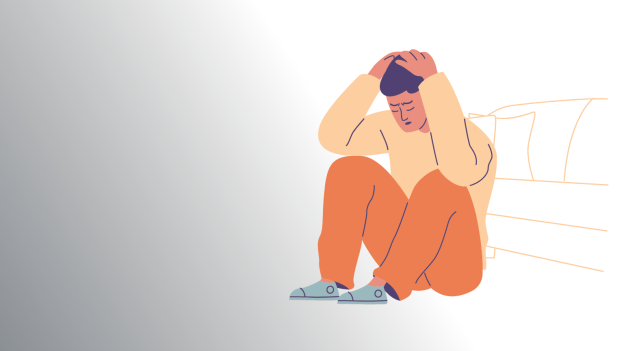Let’s talk about Anxiety Disorders
Approximately, 30% of adults will experience an anxiety disorder in their lifetime. While most people experience anxiety in stressful situations (i.e., taking a test, preparing for a work presentation, going on a first date), those with anxiety disorders feel frightened, distressed, and uneasy for no apparent reason.
These unexplained feelings of apprehension and impending doom can affect one’s ability to work, do school, and maintain relationships. Luckily, there are a lot of different treatment options available to help those with anxiety disorders lead productive lives.
Symptoms
There are many different types of anxiety disorders: generalized anxiety disorder, obsessive compulsive disorder, panic disorder, phobias, post-traumatic stress disorder, social anxiety disorders, etc. Each disorder comes with their own set of symptoms, but these are common symptoms that people with anxiety disorders can experience:
Excessive worry about everyday routine life events
Feeling restless
Feeling tired
Difficulty concentrating or losing their train of thought
Irritability
Muscle pain, tightness, and soreness
Difficulty sleeping
If you or someone you know is experiencing symptoms, check your risk by taking our anxiety screening.
Treatment
Treatment will vary depending on the type and severity of anxiety disorder, but most treatments include psychotherapy, medication, or a combination of the two.
It is important to know that treatment for mental health conditions are tailored to the individual and the information presented here are just a few of the many different treatment options.
Psychotherapy
Psychotherapy is a form of treatment conducted by a trained and licensed therapist (i.e., psychologist, social worker, or counselor). The therapist provides a supportive environment for individuals to talk openly about their mental health condition(s) and emotional challenges with someone who is objective and non judgmental. There are many different forms of psychotherapy, but in general the therapist and patient work together to identify the causes of their mental health condition, develop coping mechanisms, and challenge thinking and behavioral patterns.
Cognitive Behavioral Therapy
One of the most effective forms of psychotherapy for anxiety disorders is cognitive behavioral therapy (CBT). This type of psychotherapy is based on the principles that mental health conditions derive from unhelpful ways of thinking and learned patterns of unhelpful behavior. Symptom relief occurs by individuals challenging and changing their thinking and behavioral patterns (American Psychological Association, 2017).
Medications
There are several types of medications that are used to help relieve anxiety symptoms. Anxiety medications come in two different categories: short term and long term medications. Short term medications like benzodiazepines work quickly and are used when one is having an anxiety or panic attack. Long term medications include antidepressants. While anxiety disorders and depressive disorders are not the same, the same type of medications can be used to help alleviate symptoms of anxiety (Mental Health America, 2023).
It is important to consult with a medical provider before taking any medications.

Resources
Looking for information, tools or resources for mental health?
Visit our online resource library, where you’ll find tools and apps to support your mental health and wellness, information about mental health and common mental health conditions, on-demand videos and trainings, interactive tools to help you build wellness and safety plans, research and reports, resources for schools and workplaces, and much more!

